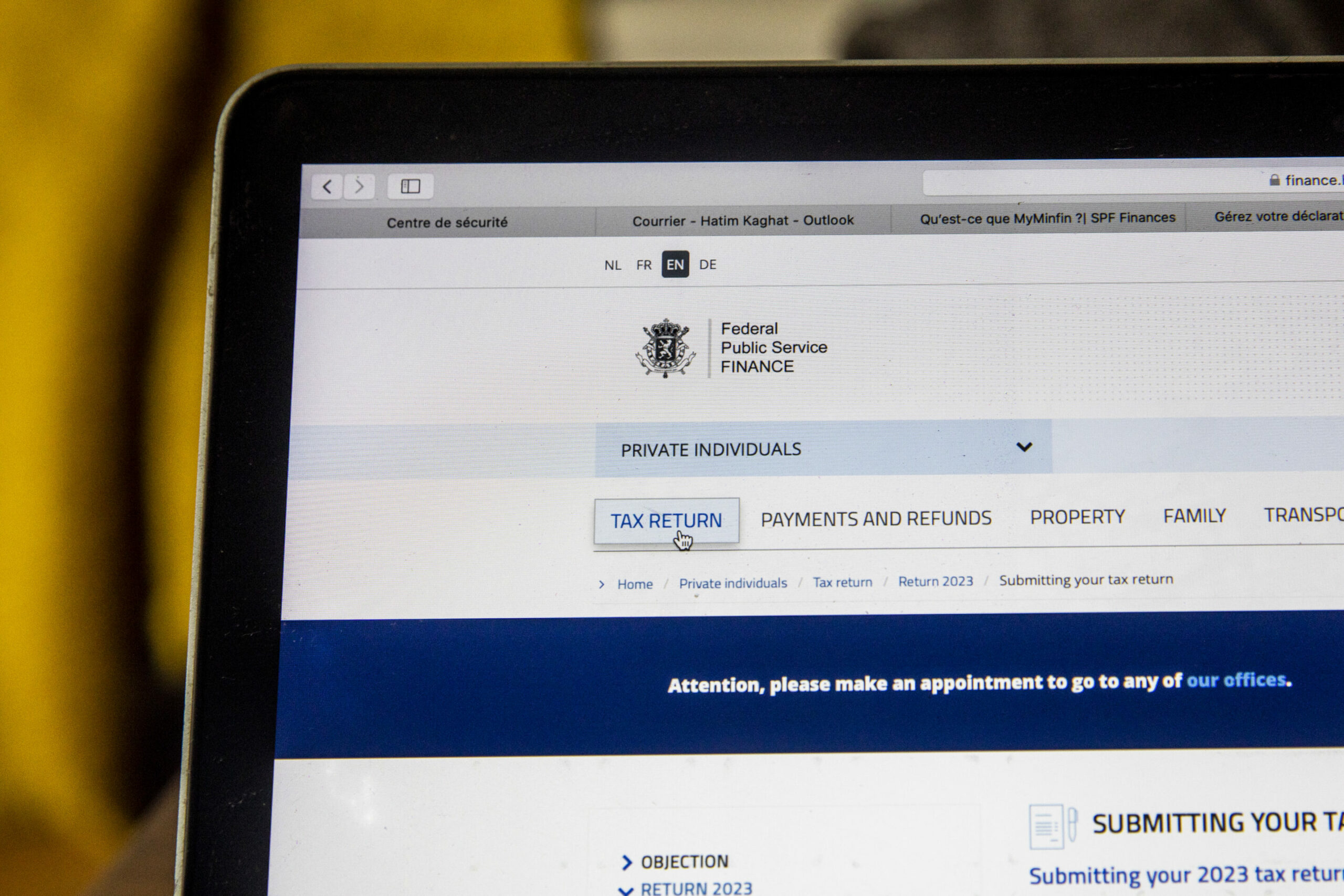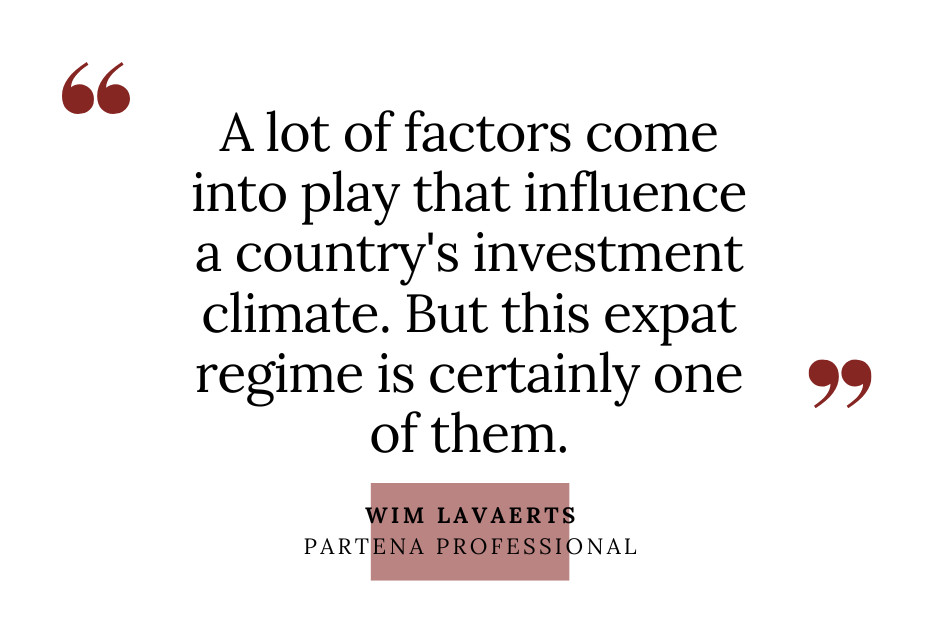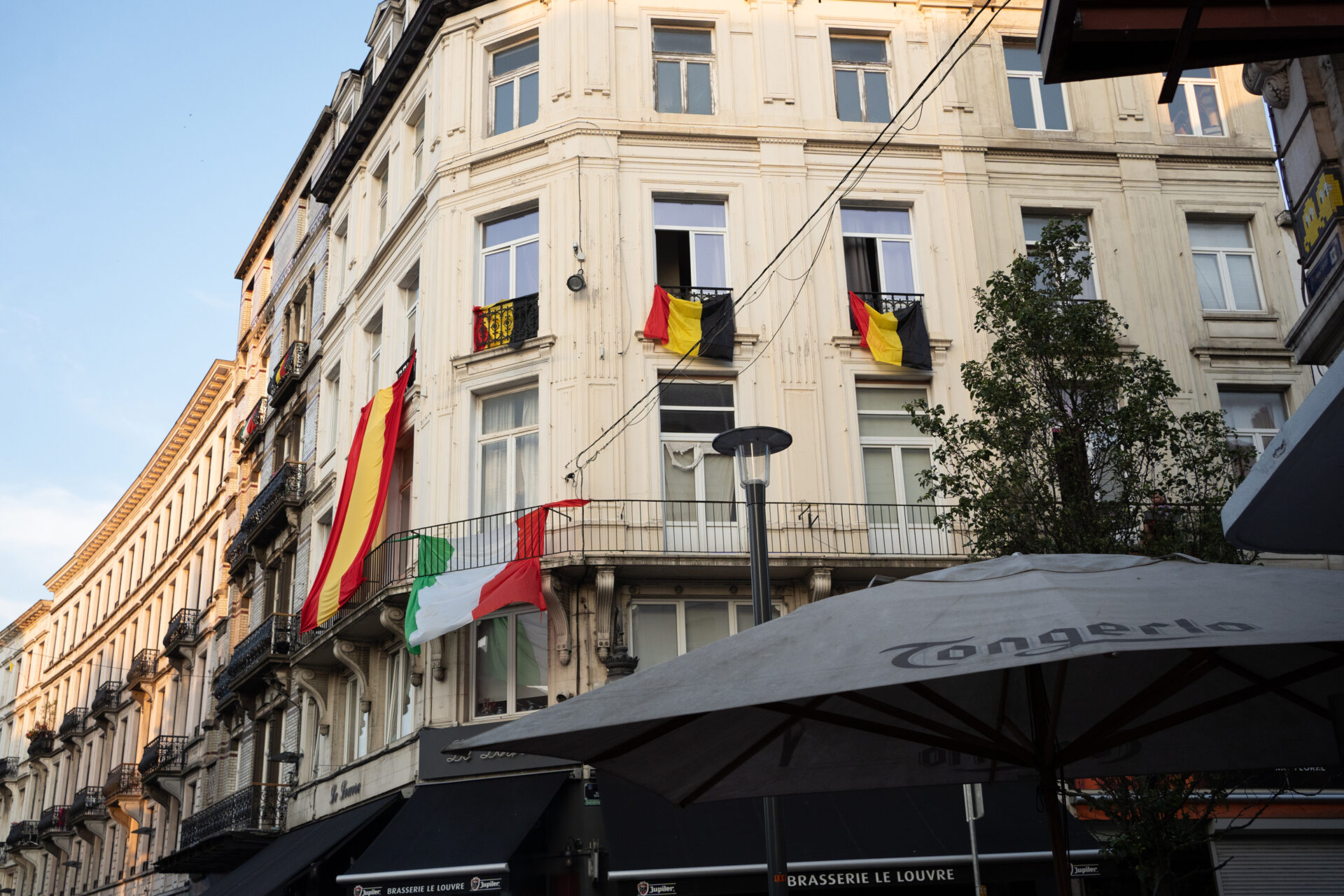Belgium's new Federal Government is planning on making changes to how expats are taxed. Softer eligibility criteria aim to increase foreign investment and boost employment.
Belgium created a special tax category for expatriates in 1983 in order to draw talent to the country. Expats benefited from a range of perks such as write-offs on taxable income and tax deductions for duties performed in foreign locations.
In 2021, then Finance Minister Vincent Van Peteghem (CD&V) announced that the tax regime would be phased out in order to make taxation more transparent.
From 2022 (and in certain cases 2023), expats (renamed 'inpatriates', or 'inpats') have only benefitted from the scheme if they earn at least €75,000. Non-taxable allowances are capped at €90,000 and enter the normal tax system after five years (eight years in exceptional cases).

The My MinFin website for the 2023 income declaration. Credit: Belga / Hatim Kaghat
However, the new 'Arizona' Federal Government coalition headed by Prime Minister Bart De Wever (N-VA) is looking to ease conditions once again.
"N-VA wants to make Belgium more attractive to foreign investors and improve the employment rate," Wim Lavaerts, Business Development Manager for International Employment at Partena Professional, told The Brussels Times.
Lower thresholds, no more caps
Arizona's government agreement outlines plans to lower the required income for inpats from €75,000 to €70,000. This broadens access to the category but Lavaerts describes it as a "limited" measure.
The impactful changes relate to non-taxable allowances. Tax-free compensation will be raised from 30% to 35% and the €90,000 limit will be scrapped.
"Say you have an annual salary of €300,000. Up to 30% of that – €90,000 – can be paid as a tax-free allowance," says Lavaerts. "Now that the non-taxable allowance is being raised to 35% and the €90,000 cap is being abolished, it will once again become more attractive for high level foreign executives to come and work in Belgium."
Bringing back 'decision makers'
While the lower income threshold are advantageous to "moderate earners", a looser approach to non-taxable allowances will reel in what Lavaerts calls the "decision makers".
This will in turn encourage larger parts of the workforce to transfer to Belgium, which will then boost foreign investment.

A Spanish flag, an Italian flag and several Belgian flags, in the city of Brussels. Credit: Belga/ Juliette Bruyneels
The re-evaluated tax system will also make Belgium more competitive against neighbouring countries France, Luxembourg and the Netherlands when it comes to attracting talent. A CEO may be less inclined to move here if their salary is to be taxed at the normal rate.
When will changes come through?
As it stands, inpats are required to apply for the existing tax regime within three months of arriving in Belgium. It is likely that the new scheme will only be open to future requests (in other words, it will not be possible to switch over if you are already here).
Lavaerts hopes new legislation will come in before summer, although no set deadline has been published.
"The question of whether we will therefore see foreign companies attracted to Belgium in the short term requires a nuanced answer," he said. "A lot of factors come into play that influence a country's investment climate. But this expat regime is certainly one of them."

